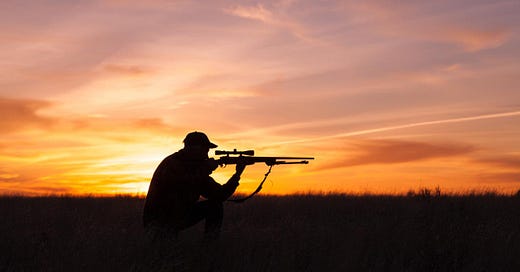That Time My Mom Married a Lion Killer
Our house became a hunting lodge, and that was just the beginning.

Photo by Tom Tietz
When I was three, my father died in a plane crash. The attorney who handled my father’s will was a lawyer named Gerald, a big, bearded guy with an expansive gut, an ex-wife, two sons, and an adopted daughter. Within a year of my father’s death, in 1999, my mom married Gerald in a small ceremony behind our house in Sanford, a tiny town outside Raleigh, North Carolina.
She and Gerald hadn’t even gotten back from their honeymoon when she realized she had made a mistake. His personality grated on her in a myriad of small ways. But she didn’t want to quit that fast. And so began our new life with Gerald, the small-town attorney and big game hunter.
By any measure, Mom and Gerald were mismatched. She enjoyed gardening, interior design, reading and traveling. He enjoyed hunting, hunting and hunting. He was a conservative who feared the fascists would come take his guns. She had subscriptions to Newsweek and Time. His house was dark, wood paneled, and decorated like a hunting …
Keep reading with a 7-day free trial
Subscribe to Narratively to keep reading this post and get 7 days of free access to the full post archives.



